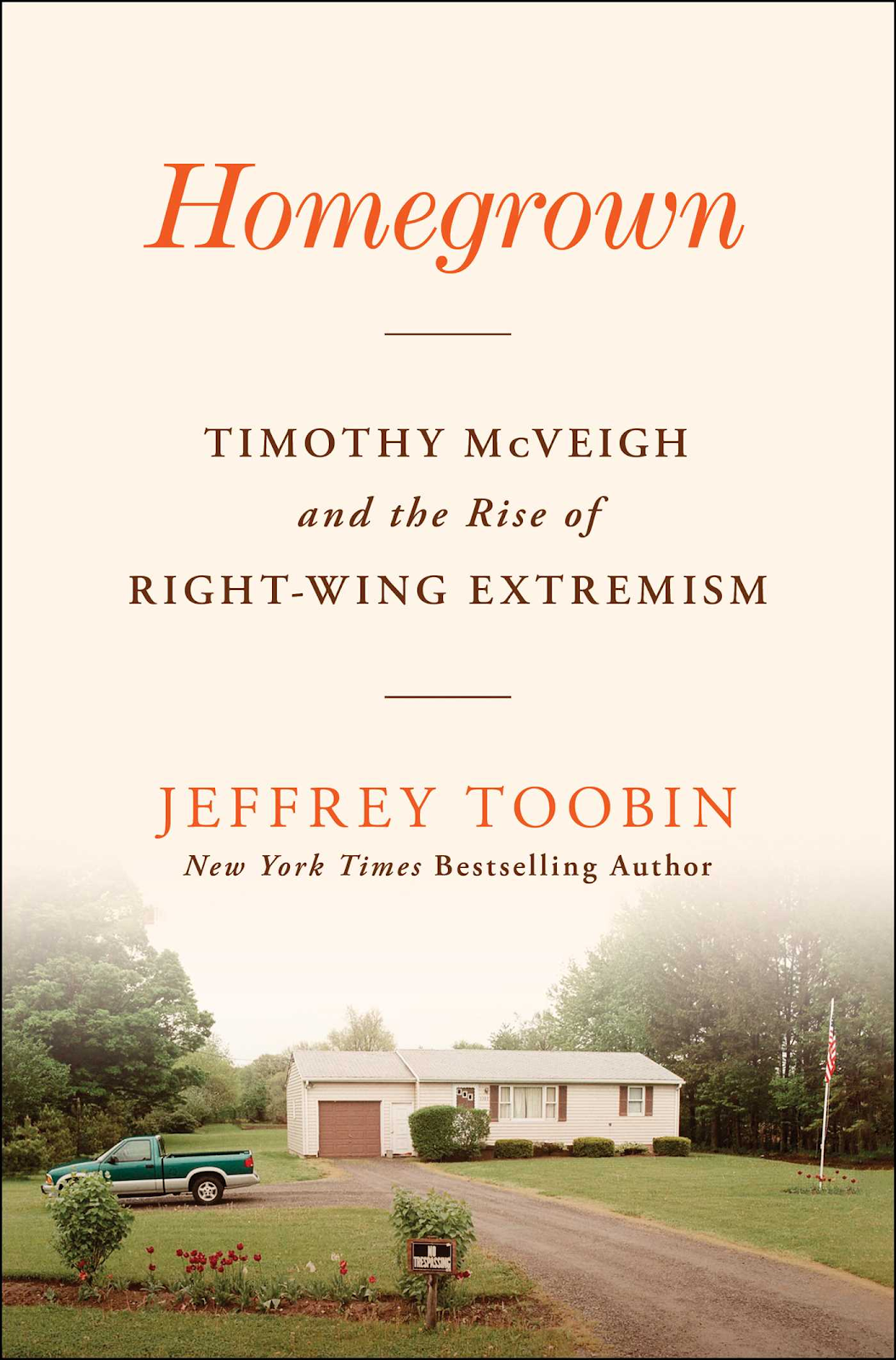From Goodreads: Timothy McVeigh wanted to start a movement.Speaking to his lawyers days after the Oklahoma City bombing, the Gulf War veteran expressed no regrets: killing 168 people was his patriotic duty. He cited the Declaration of Independence from memory: “Whenever any Form of Government becomes destructive of these ends, it is the Right of the People to alter or to abolish it.” He had obsessively followed the siege of Waco and seethed at the imposition of President Bill Clinton’s assault weapons ban. A self-proclaimed white separatist, he abhorred immigration and wanted women to return to traditional roles. As he watched the industrial decline of his native Buffalo, McVeigh longed for when America was great.New York Times bestselling author Jeffrey Toobin traces the dramatic history and profound legacy of Timothy McVeigh, who once declared, “I believe there is an army out there, ready to rise up, even though I never found it.” But that doesn’t mean his army wasn’t there. With news-breaking reportage, Toobin details how McVeigh’s principles and tactics have flourished in the decades since his death in 2001, reaching an apotheosis on January 6 when hundreds of rioters stormed the Capitol. Based on nearly a million previously unreleased tapes, photographs, and documents, including detailed communications between McVeigh and his lawyers, as well as interviews with such key figures as Bill Clinton, Homegrown reveals how the story of Timothy McVeigh and the Oklahoma City bombing is not only a powerful retelling of one of the great outrages of our time, but a warning for our future.
I was a kid when the Oklahoma City Bombing took place, but combined with other simultaneous big news stories, it's probably one of the first ones I can recall hearing about - we watched Dan Rather every night during dinner when I was growing up. Scrolling through NetGalley I came across this book and my interest was piqued.
In some ways, I think, McVeigh was ahead of his time. The author continually states that McVeigh couldn't find his people, his army with the same beliefs as him, but as we've seen with the explosion of the internet that army is well formulated today. When McVeigh was arrested during a traffic stop after the bombing it was for his gun. That law is no longer in existence and the trooper would have let McVeigh go if it was today. Even scarier, McVeigh's extreme beliefs in 1995 are far from extreme in 2023. Absolutely if he would have been caught today he would still be found guilty, but I think he would have a lot more public sympathy and it's possible he would avoid the death penalty as a result.
The comparison between Merrick Garland's response and Bill Clinton's was fascinating and I can't help to think what might have been different if Garland had played up the right-wing discontent during the trial. Would domestic terrorism be more on the forefront of people's minds heading into 9/11? The blip about the FBI's domestic terrorism report during the Obama administration was also worth pondering.
The author spends a lot of time comparing the OKC bombing and January 6th. It's an apt comparison and I don't dispute it, but it comes up so much that it gets a little tired. Overall, though, the book is well-written and presented in an easy to understand chronology. The beginning of the book about McVeigh's youth dragged a bit, but things (obviously) picked up when he started collecting parts for his bomb. I had to put the book down for a bit as the bombing was described; it was gripping and tough. The second half of the book following McVeigh's trial was extremely interesting. I do wish a little more had been explained about Nichol's trial.
This is a great read for true crime fans and those who know of the OKC bombing but not much behind it. I learned a lot and thank you to the publisher and NetGalley for an advanced copy of this book. As always, opinions are my own.





No comments:
Post a Comment